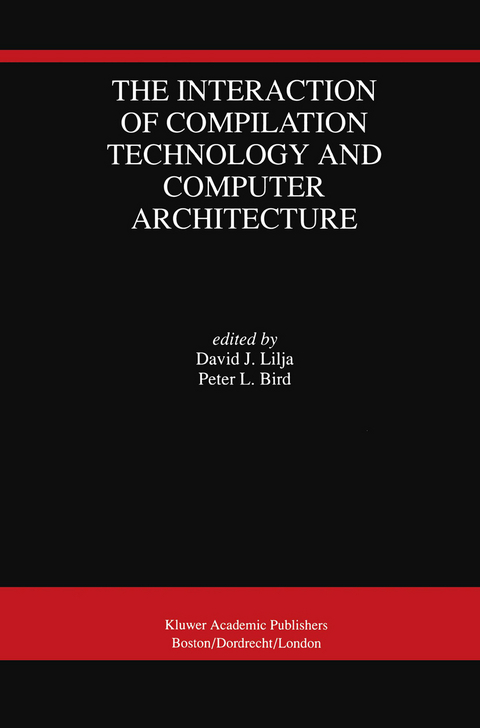
The Interaction of Compilation Technology and Computer Architecture
Not Avail (Verlag)
978-1-4615-2684-1 (ISBN)
1. Introduction and Overview; D.J. Lilja, P.L. Bird, R.Y. Kain. 2. Architectural Support for Compile-Time Speculation; M.D. Smith. 3. Register Requirements for High Performance Code Scheduling; B. Mangione-Smith. 4. Data Dependencies in Decoupled Pipelined Loops; P.L. Bird. 5. The Effects of Traditional Compiler Optimization on Superscalar Architectural Design; T.M. Conte, K.N.P. Menezes. 6. Dynamic Program Monitoring and Transformation Using the OMOS Object Server; D.B. Orr, R.W. Mecklenburg, P.J. Hoogenboom, J. Lepreau. 7. Performance Limits of Compiler-Directed Multiprocessor Cache Coherence Enforcement; F. Mounes-Toussi, D.J. Lilja. 8. Compiling HPF for Distributed Memory MIMD Computers; Z. Bozkus, A. Choudhary, G. Fox, T. Haupt, S. Tanka. 9. The Influence of the Object-Oriented Language Model on a Supporting Architecture; M. Wolczko, I. Williams. 10. Project Triton: Towards Improved Programmability of Parallel Computers; M. Philippsen, T.M. Warschko, W.F. Tichy, C.G. Herter, E.A. Heinz, P. Lukowicz. Index.
| Erscheint lt. Verlag | 1.10.2012 |
|---|---|
| Verlagsort | New York |
| Sprache | englisch |
| Themenwelt | Mathematik / Informatik ► Informatik ► Betriebssysteme / Server |
| Mathematik / Informatik ► Informatik ► Programmiersprachen / -werkzeuge | |
| Informatik ► Theorie / Studium ► Compilerbau | |
| ISBN-10 | 1-4615-2684-1 / 1461526841 |
| ISBN-13 | 978-1-4615-2684-1 / 9781461526841 |
| Zustand | Neuware |
| Haben Sie eine Frage zum Produkt? |
aus dem Bereich


